I have the following two tables:
CREATE TABLE IF NOT EXISTS `skills` (
`id` int(11) NOT NULL AUTO_INCREMENT,
`skill_category` varchar(50) CHARACTER SET utf8 COLLATE utf8_unicode_ci NOT NULL,
`skill` varchar(255) CHARACTER SET utf8 COLLATE utf8_unicode_ci NOT NULL,
`icon_filename` varchar(50) CHARACTER SET utf8 COLLATE utf8_unicode_ci NOT NULL,
`display_priority` int(11) NOT NULL,
PRIMARY KEY (`id`),
KEY `skill_category` (`skill_category`)
) ENGINE=InnoDB DEFAULT CHARSET=latin1 AUTO_INCREMENT=1 ;
CREATE TABLE IF NOT EXISTS `skills_categories` (
`id` int(11) NOT NULL AUTO_INCREMENT,
`skill_category` varchar(50) CHARACTER SET utf8 COLLATE utf8_unicode_ci NOT NULL,
`display_priority` int(11) NOT NULL,
PRIMARY KEY (`id`),
UNIQUE KEY `IDX_95FF1C8D47E90E27` (`skill_category`)
) ENGINE=InnoDB DEFAULT CHARSET=latin1 AUTO_INCREMENT=1 ;
ALTER TABLE `skills`
ADD CONSTRAINT `skills_ibfk_1` FOREIGN KEY (`skill_category`) REFERENCES `skills_categories` (`skill_category`);
Note the foreign key relation between the two skill_category columns.

I am trying to create a manytoone/onetomany relation between these tables. A one unique skill_category should have many skills. This structure seems to work fine, except when I try and verify the mapping I get the error:
The referenced column name 'skill_category' has to be a primary key column on the target entity class 'Resume\ResumeBundle\Entity\SkillsCategories'.
There is a requirement by doctrine that the referenced column be a primary key. If I make this key a primary key, my id column is no longer auto incremented, which I want. So mySQL seems to be ok with the fact that the foreign key is a primary key, however Doctrine complains about this case. Someone said they fixed it by just recreating the columns:
i've tried this, and it didn't seem to help for me. So either this is some sort of bug or I have a fundamental misunderstanding of RDBMS (completely possible). Is my problem that I shouldn't be using an 'id' column at all? That if I expect my 'skills_category' column to be unique that I should make THAT the primary key and just remove the 'id' column? That would solve my problems, but is there any problems with making a VARCHAR the primary key? Google's answer seems to be 'not really', but I would appreciate some perspective from someone else.